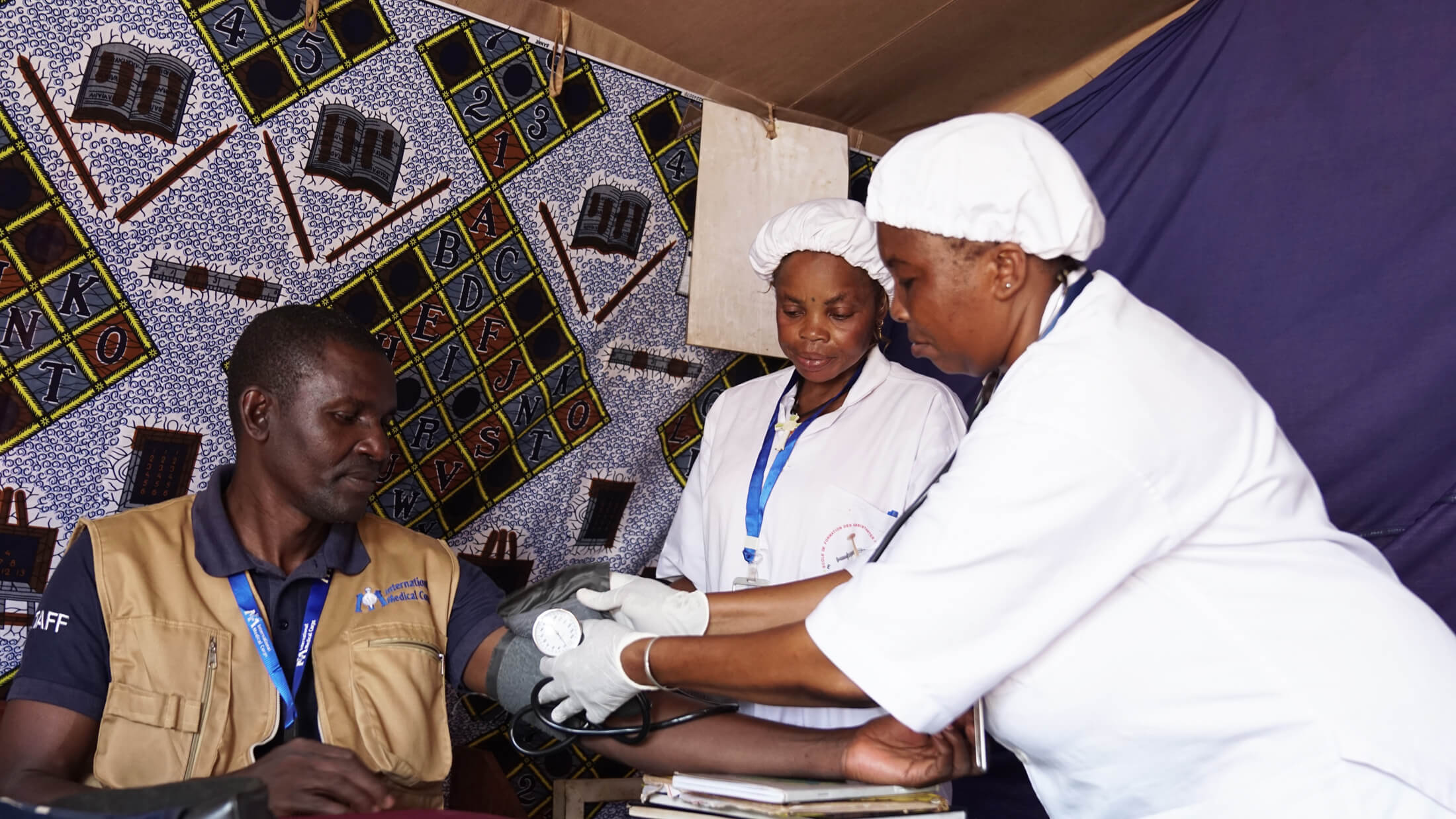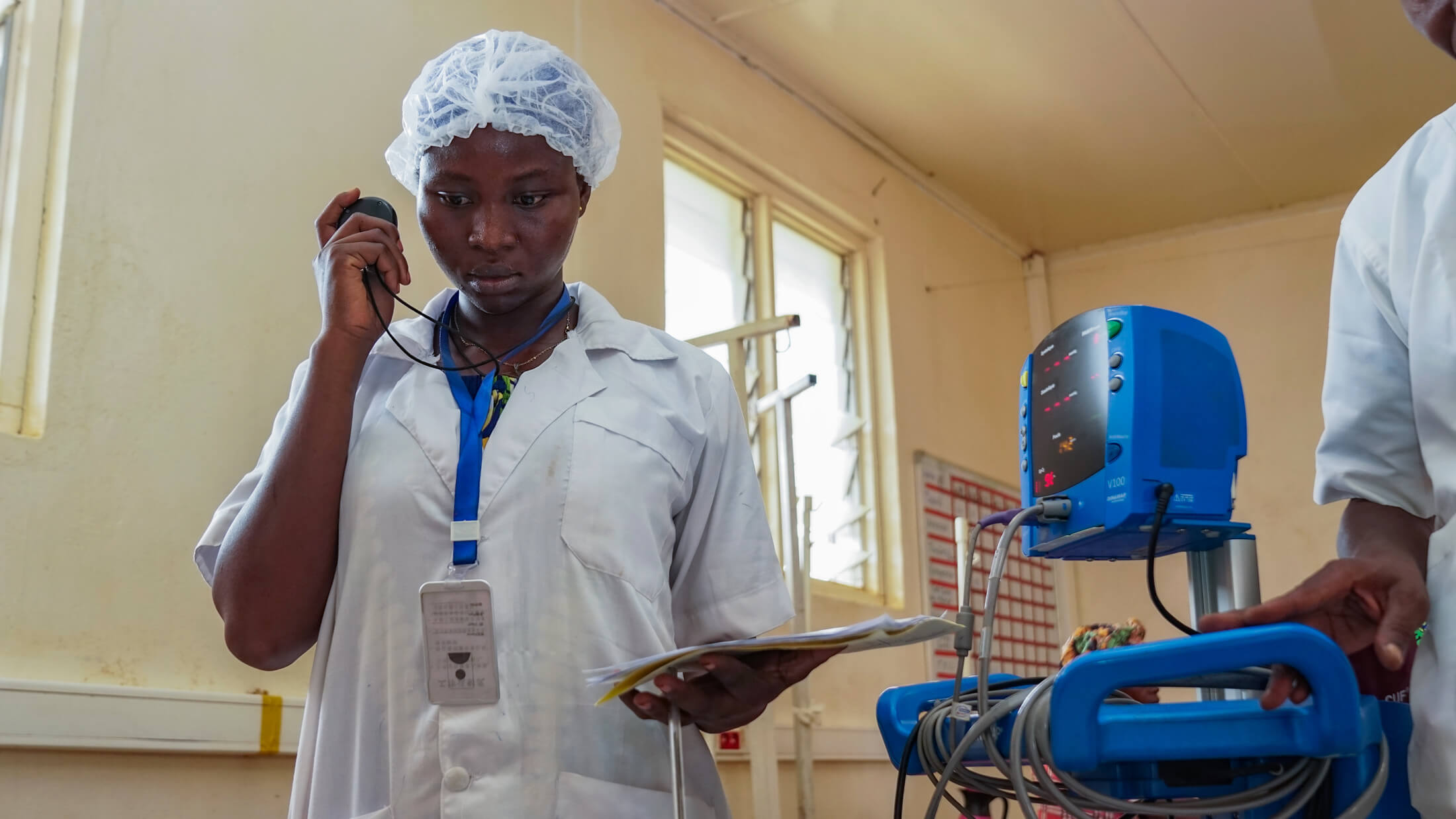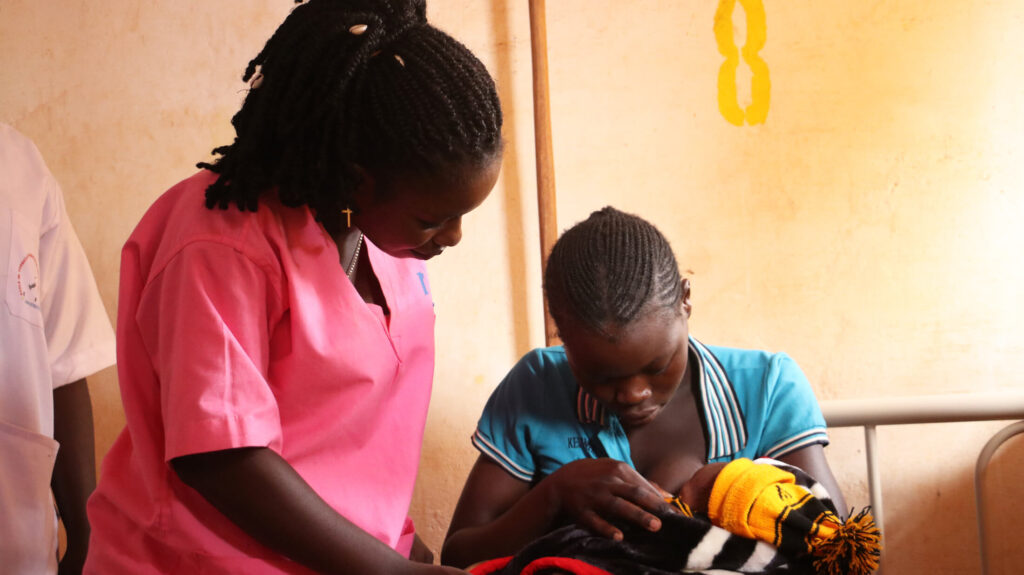The Central African Republic (CAR), a landlocked country endowed with vast forests and mineral resources, lies at the heart of Africa and is home to nearly 6 million people. Despite recent improvements in security, the country continues to face severe challenges in its health delivery system, including ensuring access to maternal and newborn health (MNH) services. These challenges stem from a complex interplay of factors, including inadequate health financing, protracted conflict and limited investment in the health workforce. With only one institution of higher education in the entire country, CAR suffers from a critical shortage of skilled birth attendants—a gap that is clearly reflected in its persistently poor MNH outcomes.
CAR has one of the highest maternal mortality rates in the world (835 deaths per 100,000 live births), often caused by preventable conditions such as post-partum haemorrhage (25%), hypertension (16%) and sepsis (10%). It also has high infant and neonatal mortality rates. These alarming reproductive health indicators are primarily driven by two factors:
- a severe shortage of skilled healthcare providers (specifically skilled birth attendants—though United Nations goals recommend a workforce density of 4.5 healthcare providers per 1,000 population, CAR falls drastically short, at just 0.3 per 1,000); and
- an unequal geographic distribution of health services, with 93% of midwives concentrated in urban areas and only 7% in rural communities that nonetheless serve 60% of the country’s population.
Due to the lack of clinically trained skilled birth attendants, many health facilities rely on traditional birth attendants (TBAs) to conduct deliveries.
Maternal and newborn health challenges are further compounded by other factors, such as early motherhood and low antenatal-care coverage, with only 41% of women nationwide and 32% in rural communities attending at just half of the eight recommended antenatal visits, according to the World Health Organization.
Care by skilled birth attendants is critically low in rural regions, where only 28% of deliveries are assisted by skilled personnel—well below the national average of 58%, and far from global standards. Caesarean-section rates are also inadequate, with only 2% of deliveries performed surgically—a figure below the ideal range of 5–15%. This indicates a significant lack of access to, and availability of, comprehensive emergency obstetric care.
A Local Solution
To improve MNH outcomes in these underserved rural areas, International Medical Corps—in partnership with the Central African Republic Ministry of Health (MoH) and Bangui University—established the Bria Auxiliary Midwife Training School (Institut Annexe de Bria) in March 2024, following a model established by similar International Medical Corps initiatives in South Sudan and Afghanistan. Located in a remote area 574 km from the country’s capital of Bangui, the school serves a population of more than 150,000 in a region with an extremely low number of skilled birth attendants. The facility comprises two lecture halls, a skills lab equipped with mannequins and teaching aids, and a library.
Under the academic leadership of Bangui University, the school offers a two-year auxiliary midwife certification program based on a French Red Cross curriculum adapted to meet national and international auxiliary midwifery-education standards. The comprehensive programme covers all aspects of auxiliary midwifery assistance, including prenatal care, labour and delivery, postpartum care, family planning and newborn care.

The programme blends classroom instruction with hands-on clinical experience under supervision through placements at Bria Hospital and a nearby camp for internally displaced people. The students also undergo regular scheduled practical-skills assessments to evaluate their learning and retention of skills—a practical approach that equips students to apply what they’ve learned in real-world settings.
Transforming Lives and Health Systems
The school’s first cohort of 18 students, enrolled in March 2024, is now completing its second year of training. A second cohort of 51 students began in November 2024. The groups are expected to graduate in early and late 2026, respectively.
Most students come from the region and have been directly affected by conflict and insecurity. They have diverse educational and professional backgrounds: some have worked in health facilities in other capacities or with international NGOs, while others have served their communities as community health workers, TBAs, first-aid providers or medicine dispensers. The midwifery course offers a unique pathway for these students to become skilled auxiliary midwives able to serve women and newborns in their own rural communities.
This initiative addresses not only the deep-rooted gaps in CAR’s health system—namely, the shortage of qualified healthcare workers and poor MNH outcomes—but also transforms lives by offering professional opportunities to those who otherwise would not have had access to higher education. This success was made possible through an innovative partnership model—core support from the MoH supplemented by donor contributions—and reflects a collaborative approach that transcends traditional NGO-led interventions. In a country with only one university, this initiative directly responds to the urgent need to build a sustainable, equitable health workforce.
Navigating Uncertainty with Purpose
To enhance the quality of instruction, the school plans to adopt distance-learning technologies, enabling faculty from Bangui and abroad to deliver lectures remotely, ensuring access to quality education even in the most remote areas. Resources are required for the procurement and installation of teleconference equipment at both the Bria Institute and Bangui University. Support is also needed to ensure reliable power and internet supply at the Bria Institute, as well as adoption of selected training modules for online training formats.

The school was rehabilitated and equipped by International Medical Corps through private funding, with the first year of operations funded by a generous contribution from the CAR MoH, later supplemented by other donors. In the near term, the goal is to consolidate current gains by maintaining the school for at least two more years, when the Bria Institute will be transitioned fully to Bangui University and the MoH. This will enable both current cohorts to complete their studies and receive their certificates, as well as a new cohort to be enrolled—preventing the loss of progress gained so far.
International Medical Corps is urgently seeking financial support to sustain the school’s operations for two additional years, ensuring continuity for the current students until it is transitioned to Bangui University and the MoH. Your support will enable 69 students—most from rural, conflict-affected communities—to complete their training and become certified auxiliary midwives. This is a critical investment that will help reduce maternal and newborn mortality in one of the most underserved regions of the Central African Republic.
With continued operations, the school can capitalise on high-impact growth opportunities, including the possibility of programme expansion with accredited midwifery and nursing certifications, and the ability to expand student enrollment. The success of this project will serve as a model to be replicated in other underserved rural areas where trained skilled birth attendants can contribute to improving maternal and newborn outcomes.
